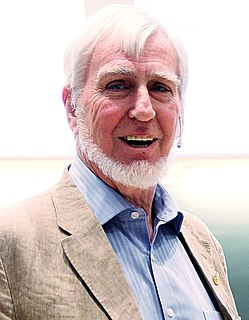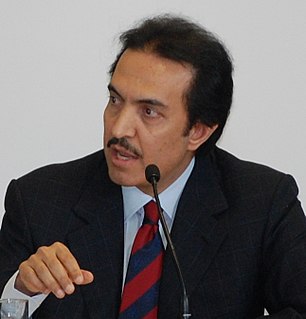Top 89 Neuroscience Quotes & Sayings - Page 2
Explore popular Neuroscience quotes.
Last updated on November 24, 2024.
Make sure to immediately write down any impressions you receive. Intuitive impressions are often subtle and therefore 'evaporate' very quickly, so make sure to capture them in writing as soon as possible. Recent research in neuroscience indicates that an intuitive insight - or any new idea - not captured within 37 seconds is likely never to be recalled again. In 7 minutes, it's gone forever. As my buddy Mark Victor Hansen likes to say, 'As soon as you think it, ink it!'
Cognitive neuroscience is entering an exciting era in which new technologies and ideas are making it possible to study the neural basis of cognition, perception, memory and emotion at the level of networks of interacting neurons, the level at which we believe many of the important operations of the brain take place.
Metaphor isn't just a fancy turn of speech. It shapes our thoughts and feelings, reaches out to grasp new experience, and even binds our five disparate senses. James Geary's fascinating and utterly readable I is an Other brings the news on metaphor from literature and economics, from neuroscience and politics, illuminating topics from consumer behavior to autism spectrum disorders to the evolution of language. As a writer, as a teacher, and as someone just plain fascinated by how our minds work, I've been waiting years for exactly this book.
For the last century of neuroscience, lots of people have tried to control neurons using all sorts of different technologies - pharmacology (drugs), electrical pulses, and so on. But none of these technologies are precise. With optogenetics, we can aim light at a single cell, or a set of cells, and turn just that set of cells on or off.
What Warcollier demonstrated is compatible with what modern cognitive neuroscience has learned about how visual images are constructed by the brain. It implies that telepathic perceptions bubble up into awareness from the unconscious and are probably processed in the brain in the same way that we generate images in dreams. And thus telepathic “images” are far less certain than sensory-driven images and subject to distortion.
When I got out of the military, I finished up my education at the University of North Carolina at Wilmington, and I had some mentors who said, 'You got what it takes. You should consider going to graduate school, getting a Ph.D. in neuroscience.' I didn't think I had what it took until somebody who had a Ph.D. told me I had what it takes.
I spent so much of my life reading about spirituality and reading about neuroscience and trying different meditation practices. It's a really big part of my life. But it's sometimes hard to talk about. There are so many people in the world who don't live in Southern California and don't spend their time meditating.
I would say to anybody who thinks that all the problems in philosophy can be translated into empirically verifiable answers - whether it be a Lawrence Krauss thinking that physics is rendering philosophy obsolete or a Sam Harris thinking that neuroscience is rendering moral philosophy obsolete - that it takes an awful lot of philosophy - philosophy of science in the first case, moral philosophy in the second - even to demonstrate the relevance of these empirical sciences.
The elegant study... is consistent with the themes of modern cognitive neuroscience . Every aspect of thought and emotion is rooted in brain structure and function, including many psychological disorders and, presumably, genius. The study confirms that the brain is a modular system comprising multiple intelligences, mostly nonverbal.
As modern-day neuroscience tells us, we are never in touch with the present, because neural information-processing itself takes time. Signals take time to travel from your sensory organs along the multiple neuronal pathways in your body to your brain, and they take time to be processed and transformed into objects, scenes, and complex situations. So, strictly speaking, what you are experiencing as the present moment is actually the past.
Cognitive neuroscience, and social theorists from Weber to Bourdieu, have recognized that humans act, most of the time, habitually, not reflectively. Both at intrastate and inter-states levels, habits play critical roles in mitigating uncertainty, providing a sense of order, and entrench patterns of cooperation or enmity.
If we dedicate a certain amount of time each day to cultivating compassion or any other positive quality, we are likely to attain results, just like when we train the body... Meditation consists of familiarizing ourselves with a new way of being, of managing our thoughts and the way we perceive the world. Through the recent advances in neuroscience it is now possible to evaluate these methods and to verify their impact on the brain and body.
It is especially important for managers to know about, neuroplasticity, the greatest discovery in neuroscience in the past 20 years. It refers to the fact that the brain is remarkably plastic. It can grow and change for the better throughout life. In fact, "plastic" denotes the brain's ability to grow and change throughout life.



























